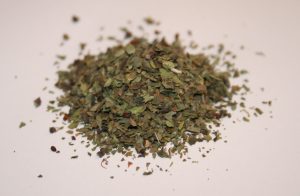Inventory Situation Could Get Sticky for Marijuana Businesses
Time is almost up for marijuana business owners to achieve full compliance of testing and packaging regulations. For![]() six months, businesses have enjoyed a grace period that allowed them to sell marijuana products that were not in total compliance so long as they included a label indicating any safety standards the product did not meet. As of July 1, owners must clear their shelves of all product that does not meet regulations, resulting in an influx of cannabis sales in the month of June and could lead to an impending shortage, according to the Orange County Register.
six months, businesses have enjoyed a grace period that allowed them to sell marijuana products that were not in total compliance so long as they included a label indicating any safety standards the product did not meet. As of July 1, owners must clear their shelves of all product that does not meet regulations, resulting in an influx of cannabis sales in the month of June and could lead to an impending shortage, according to the Orange County Register.
When Proposition 64 went into effect Jan. 1, it brought with it new sets of rules in regards to recreational marijuana sales. Because marijuana products were already in production long before then, having served the medical marijuana market for almost 20 years, California imposed a grace period in which production and labeling regulations could catch up. This led to retailers bulking up on less expensive products that were not in total compliance at the end of 2017 to keep their stores well stocked in the first half of the year. Now they will need to clear their shelves of any remnants of that stock. Meanwhile, owners will be clamoring to replace that inventory with new products that meet regulations. Continue reading
 Cannabis Law Group's Medical Marijuana Legal Blog
Cannabis Law Group's Medical Marijuana Legal Blog





 business owners. Some legislators agree, but others think the higher taxes should stand, at least for a while longer. For now, the current tax rate will remain, as an assembly bill addressing cannabis taxation failed to advance out of committee, according to an
business owners. Some legislators agree, but others think the higher taxes should stand, at least for a while longer. For now, the current tax rate will remain, as an assembly bill addressing cannabis taxation failed to advance out of committee, according to an  cannabis. Oregon in particular is reporting an excess in cannabis production, which is driving down the price of marijuana at dispensaries across the state, according to
cannabis. Oregon in particular is reporting an excess in cannabis production, which is driving down the price of marijuana at dispensaries across the state, according to  in common with the natural drug as a circle to a square. Lawmakers have long been chasing down these dangerous substances, to no avail. But the Illinois State Senate is taking steps to close loopholes that manufacturers have been manipulating once and for all, according to
in common with the natural drug as a circle to a square. Lawmakers have long been chasing down these dangerous substances, to no avail. But the Illinois State Senate is taking steps to close loopholes that manufacturers have been manipulating once and for all, according to  Online media giant YouTube has enacted a host of more stringent enforcement guidelines, seemingly at random, restricting and even shutting down many channels its representatives claim violate its policies. Gun-related channels in particular have come under scrutiny. A bit more perplexing, however, is the site’s more aggressive stance against cannabis-related videos recently, sending warnings, flagging content, and shutting down entire channels, particularly those that seek to educate and advocate. Even after complying with warnings, channel owners said they were suspended. Many of the channels had been around for years, some almost since the beginning of YouTube, according to a
Online media giant YouTube has enacted a host of more stringent enforcement guidelines, seemingly at random, restricting and even shutting down many channels its representatives claim violate its policies. Gun-related channels in particular have come under scrutiny. A bit more perplexing, however, is the site’s more aggressive stance against cannabis-related videos recently, sending warnings, flagging content, and shutting down entire channels, particularly those that seek to educate and advocate. Even after complying with warnings, channel owners said they were suspended. Many of the channels had been around for years, some almost since the beginning of YouTube, according to a  advertisers that allow them to focus their audience in a way that would be extraordinarily beneficial for marijuana products and dispensaries. They would be able to narrow down the viewers to only include people in states where cannabis is legal. They would also be able to add age restrictions, ensuring as much as possible that minors would not be exposed to the ads. It’s really a win-win, except for one very annoying catch.
advertisers that allow them to focus their audience in a way that would be extraordinarily beneficial for marijuana products and dispensaries. They would be able to narrow down the viewers to only include people in states where cannabis is legal. They would also be able to add age restrictions, ensuring as much as possible that minors would not be exposed to the ads. It’s really a win-win, except for one very annoying catch. working with medical marijuana operations obtain compliance with the law. More recently, we’ve been on the forefront of helping recreational marijuana businesses align their operations with the regulatory parameters set forth in
working with medical marijuana operations obtain compliance with the law. More recently, we’ve been on the forefront of helping recreational marijuana businesses align their operations with the regulatory parameters set forth in